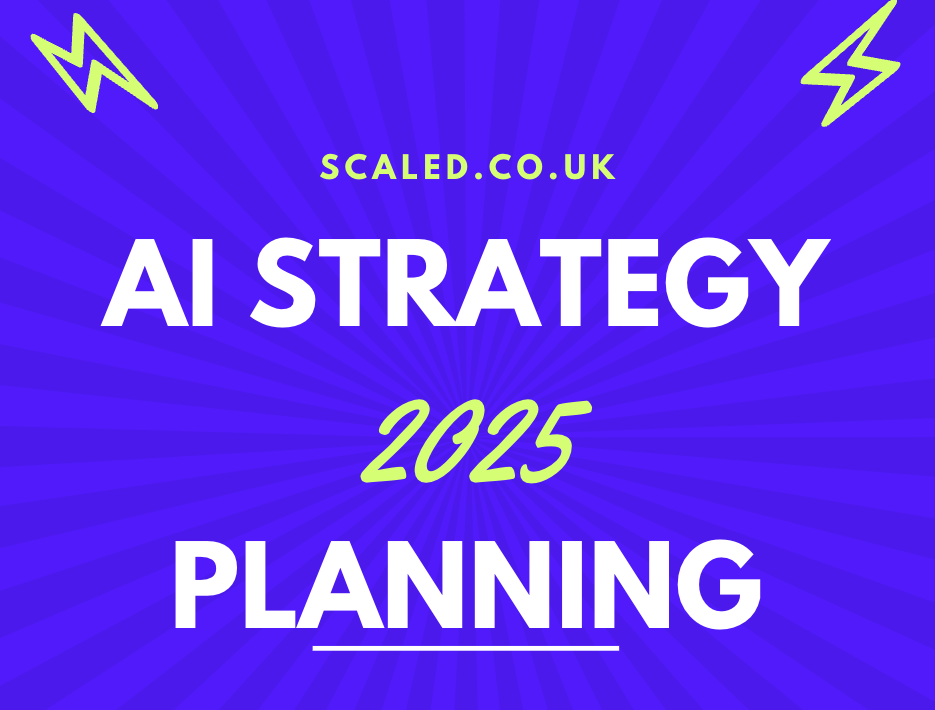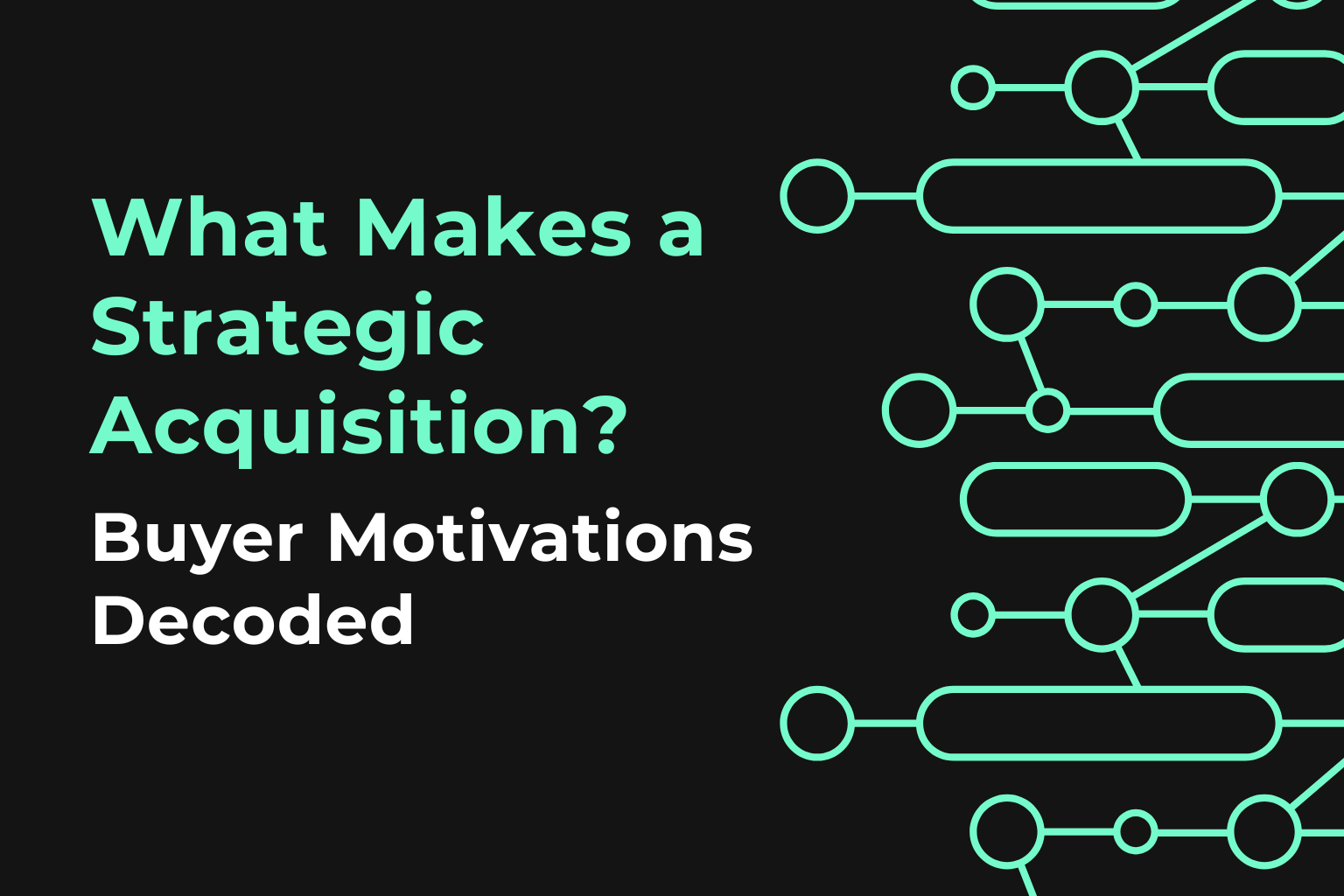Agentic AI (agent-driven artificial intelligence) represents the next frontier in AI development. Unlike traditional AI systems that execute predefined tasks, agentic AI possesses a level of autonomy, enabling it to perceive its environment, make decisions, and act independently to achieve specific goals.
In the B2B (business-to-business) world, this technology is poised to revolutionise operations, decision-making, and client relationships and 2025 is going to be ALLLLL about getting ahead in this new arms race.
Given it’s importance then we thought we’d create this simple guide to help you understand what AI Agents are really going to look like, how they work, why they’re important, and critically how you can think about them in the context of your agency, consultancy or other B2B business.
Understanding Agentic AI in a B2B Context
Agentic AI systems operate as intelligent agents capable of:
- Goal Setting and Execution: These systems can autonomously determine the most efficient path to achieve a defined goal, continuously learning and adapting.
- Complex Problem Solving: They analyse vast datasets, identify patterns, and suggest or implement solutions with minimal human intervention.
- Contextual Awareness: By integrating real-time data and historical context, agentic AI can make decisions that align with dynamic business environments.
- Interactivity: They interact with other systems, clients, or stakeholders to deliver actionable insights or services.
In B2B, agentic AI can redefine areas like customer acquisition, supply chain optimisation, and personalised client solutions. For example, an agency could deploy an AI agent to autonomously generate client-specific marketing strategies or a consultancy could use it to forecast industry trends and provide proactive recommendations.
Revolutionising B2B Operations
To give you just a taste of the wider application if such technology let’s look, for a second, at a few ways in which it could be applied to different teams, or industries….
1. Sales and Marketing Optimisation
Agentic AI can autonomously:
- Identify and prioritise high-value leads using predictive analytics.
- Tailor marketing campaigns to individual client preferences in real-time.
- Negotiate pricing or contract terms with clients within defined parameters.
2. Supply Chain Automation
Agentic AI systems can:
- Predict demand fluctuations and optimise inventory levels.
- Automatically reroute logistics in response to disruptions like weather or geopolitical events.
- Facilitate seamless communication across supplier networks.
3. Client Relationship Management
With agentic AI, B2B firms can:
- Provide 24/7 support through intelligent virtual agents.
- Anticipate client needs and proactively suggest solutions.
- Analyse client feedback to refine services without human input.
4. Internal Process Efficiency
Internally, agentic AI can streamline operations by:
- Automating repetitive tasks like data entry and report generation.
- Managing workflows to optimise team productivity.
- Identifying inefficiencies and suggesting process improvements.
Example: Enhancing CRM with an Agentic AI
Agentic AI can revolutionise how businesses approach Customer Relationship Management (CRM) by integrating autonomy and intelligence into existing systems. To begin, the first step involves setting clear goals for the AI agent. Businesses might aim to increase customer retention, identify upsell opportunities, or automate repetitive follow-up tasks. These objectives guide how the AI agent’s capabilities are shaped and implemented.
Next, data integration is crucial. This involves connecting the AI agent with CRM platforms such as Salesforce or HubSpot, ensuring that customer data, interaction histories, and sales metrics are synced seamlessly. With this data at its disposal, the agent can analyse patterns in customer behaviour and generate actionable insights. For instance, it might flag at-risk customers requiring attention or suggest opportunities for cross-selling based on purchasing trends.
One of the most impactful capabilities of an agentic AI in CRM is its ability to personalise communication. It can autonomously draft and send tailored emails or messages, considering individual customer preferences and behaviours. For example, the AI might follow up on a recent purchase with complementary product recommendations or send reminders for upcoming subscription renewals.
In addition to personalised communication, workflow optimisation is a significant benefit. The AI can take over routine tasks such as updating contact details, scheduling meetings, or logging customer interactions, allowing the human team to focus on strategic initiatives and client relationship-building.
Moreover, the agent can provide proactive customer support through natural language processing (NLP). Equipped with advanced conversational capabilities, it can handle inquiries via chatbots or email, resolving common issues or escalating complex ones to human representatives when necessary. Over time, the AI learns from these interactions, improving its efficiency and accuracy.
Continuous monitoring and learning are integral to the agent’s success. The system is designed to adapt, using real-time feedback to refine its decision-making processes and engagement strategies. By defining and tracking key performance indicators (KPIs) such as response times, customer satisfaction scores, or revenue growth, businesses can measure the agent’s impact and make necessary adjustments to enhance its effectiveness.
This example demonstrates how an agentic AI can transform a CRM system into a dynamic, intelligent tool for more efficient, personalised, and proactive customer management.
Brainstorming Implications and Applications
So, how do you think about the opportunity (and challenge) it represents for the future of your business? The very best way is to work with your wider team and brainstorm applications (feel free to use ChatGPT to hep here as a brainstorm agent!).
The process though should follow this basic workflow…
1. Identify Pain Points
- Gather your team and list the most significant challenges your business faces.
- Prioritise tasks that are repetitive, time-intensive, or prone to errors.
2. Explore Value Creation
- Ask: “What would we do if we had an additional expert team member working 24/7?”
- Identify areas where autonomous decision-making could enhance efficiency or client satisfaction.
3. Map Current Workflows
- Visualise existing processes to highlight bottlenecks or inefficiencies.
- Evaluate where an intelligent agent could intervene and deliver value.
4. Assess Market Trends
- Research how competitors are adopting AI-driven solutions.
- Consider emerging industry trends that align with agentic AI capabilities.
5. Encourage Cross-Functional Input
- Include diverse teams (e.g., marketing, operations, IT) to uncover broader opportunities.
- Use brainstorming frameworks like SCAMPER (Substitute, Combine, Adapt, Modify, Put to another use, Eliminate, Reverse) to stimulate creativity.
Steps to Build or Buy an Agentic AI System
Once you’ve identified potential use cases, you can either build or buy an agentic AI system. If your business has a more technical team within it, or you feel the investment in building an owned system is worth it, then here’s how to think about that challenge.
You must start by taking what you’ve learned from the brainstorm process and join it up with the infrastructure challenge. To build your own agent you must consider:
- Infrastructure: Invest in AI frameworks such as TensorFlow, PyTorch, or OpenAI APIs.
- Data: Aggregate and clean your datasets for training.
- Development: Partner with AI developers or hire in-house talent to create a custom solution.
- Iterative Testing: Continuously test the agent in controlled environments before scaling.
Purchase a Prebuilt Solution
Or, if you’re not yet ready to take that (BIG) step – and many won’t be – then you can increasingly find a micro-saas solution that has solved it for you.
Research SaaS platforms offering agentic AI tailored to your industry and look for providers with strong integration capabilities and robust support.
Want help with you AI strategy? We are here to help. Drop us an email at hello@scaled.co.uk and we will happily chat you through the process.



